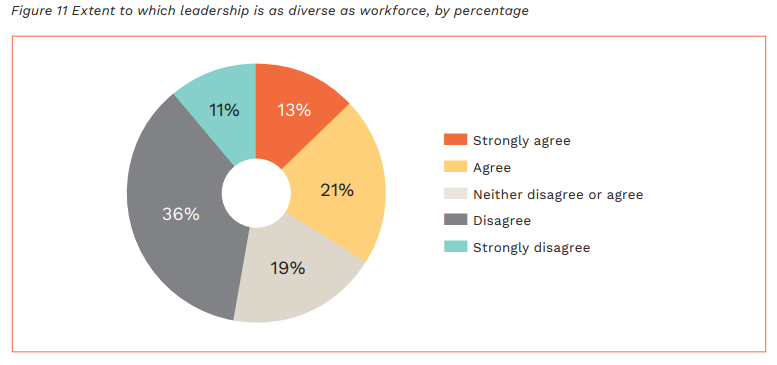

Nearly half of workers don't think their leadership diversity matches the workplace.
Unsplash
Pacific workers urged to apply ‘cultural capital’ to leadership roles
A report shows a lack of diversity in leadership roles, but independent board director Caren Rangi says Pacific people have many tools to excel in management positions.


Vanuatu residents traumatised by quake afraid to return to homes

Superpower rivalry makes Pacific aid a bargaining chip - expert



Vanuatu residents traumatised by quake afraid to return to homes

Superpower rivalry makes Pacific aid a bargaining chip - expert

Pacific people are being urged to bring their cultural skills to their jobs.
This comes as a report from Diversity Works NZ shows 47 per cent think their leadership is not as diverse at the workplace.
Independent board director Caren Rangi says a leadership style informed by Pacific culture can benefit everyone in an organisation or workplace.
“We're already wired to be leading for everybody, to be focused on the collective more than individuals, that’s got to be a good start.
“We've had our own leadership success stories for thousands of years or else we would have died out as people.”
Speaking to William Terite on Pacific Mornings, Rangi said the challenge is getting our own people and workplaces to recognise and value different types of leadership, something that is being done well in the not-for-profit sector.
“I think about the number of our strong Pacific women that are leaders of organisations and keeping them running, and part of their strength is their cultural capital that they bring to the table.
“We have to value that more as our communities, right? And not see them as somehow being soft skills or not as comparable to qualifications that you have on paper.”

Diversity Works NZ 2024 report
Rangi has spent 22 years in leadership and governance roles, and noticed a theme around the decision making tables.
“Not a lot of them look like you and I, which was one of the reasons I went into the space, because I was concerned that the people that were important to me, family, communities, wider Pacific communities, that their views weren't being incorporated into the decision-making.”
Rangi’s extensive experience included Governor of Radio New Zealand, chair of the Pacific Business Trust and board member for the National Pacific Radio Trust, and had noticed some changes since she started.
“Do I think things have got better? Marginally, I do see more of our people sitting around tables that we should be sitting around, but still not enough.
“A lot of efforts are being made in the public sector, for example, but I don't know so much what's happening in the private sector.”
What’s getting in the way?
Many Pacific cultures have a hierarchical structure where a leader, often male, is the common speaker or decision maker, but Rangi said some aspects of this can hinder opportunities.
“I have seen examples where perhaps those kinds of hierarchies aren't used in a useful way, where they cut across workplace relationships. So it's the kind of thing where there are powers you should use for good, not for evil.”
Watch the full interview with Caren Rangi on Pacific Mornings:
Succession planning
A report in March on gender-inclusivity in the private sector showed the average number of women directors in the Pacific rose to 26 per cent in 2024, a five percent increase in three years.
Cook Islands, Samoa, Kiribati and Tuvalu have higher proportions of women chief executives and directors, but Papua New Guinea and Fiji are still below the regional average.
The report’s author, Sarah Boxall told RNZ Pacific this is due to higher education.
"We are seeing in the Pacific women are increasingly well educated, they are graduating from university at a higher rate, we know as well from our survey that women in the Pacific are very ambitious."
Rangi helped establish a director’s development programme for Board members of Cook Islands state-owned enterprises. She said this leadership trend needs to continue, along with ways to support and develop new leaders in the region.
“At home in the Cooks, we send our young ones off to get university degrees, but when they come back to get jobs, there aren't always those opportunities or space made so they've got to fight quite hard to line up against the existing leadership.
“So as communities, as governments, as organisations, we should be thinking about our succession planning for our leaders, and particularly for the next generation.”